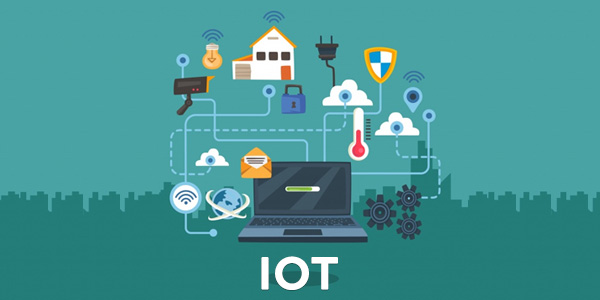The modern, urban lifestyle is highly dependent on IoT devices. The ease and comfort they provide are, no doubt, enormous but these devices are also susceptible to several challenges. To guard against cyber-attacks and other untoward activities, it is essential for the creators of these devices to step up security provisions.
The world of IoT (Internet of Things) has limitless possibilities. Technological advancements have rendered smart and exceedingly efficient devices over time, with IoT being in the forefront. IoT devices drive effective communication, automate things, and also save time and cost. IoT is also the core concept behind smart homes, auto-pilot cars, smart utility meters and smart cities.
Research and Development (R&D) in the field of IoT has become essential as the future is highly dependent on it. According to McKinsey & Company, the overall economic impact of IoT devices could surpass $11-trillion mark by 2025 making it one of the most valuable sectors. And the larger the sector, the more challenges in the offing that can threaten its existence.
- IoT devices drive effective communication, automate things, and also save time and cost. IoT is also the core concept behind smart homes, auto-pilot cars, smart utility meters and smart cities.
- Most of the devices bought from the market come with default passwords making them prone to hackers unless, of course, the password is changed before use.
- Though blockchain is resistant to hacking, crypto-currency trading applications are not. However, instances of cyber-attacks in the blockchain sector are also increasing of late.
One of the most significant challenges in store for IoT devices is the possibility of attacks from Artificial Intelligence. Having scarce updates on IoT-driven devices makes them susceptible to hacking, thereby, posing a major threat to the security of the user data. Identifying bugs and issues with these devices and working on constant updates to strengthen the security apparatus are essential for such concepts.
Most of the data is stored on ‘cloud’ these days, but cloud technology is also prone to cyber-attacks. Tech giants like Amazon, Google and Apple provide their cloud-based services to store important and personalised information. If not handled properly, the leak of such critical information can prove catastrophic for any company or individual.
IoT devices are also saddled with the problem of default username and password. Most of the devices bought from the market come with default passwords making them prone to hackers unless, of course, the password is changed before use. Also, with only the username and password as login credentials, such devices are easier to crack and fetch information from.
Nowadays crypto craze is at an all-time high. The recent rise in valuations of some crypto currencies, like Bitcoin, Ethereum and Ripple, has taken the world by storm. Hackers also want to cash in on this craze. Though blockchain is resistant to hacking, crypto-currency trading applications are not. However, instances of cyber-attacks in the blockchain sector are also increasing of late.
IoT devices have now become an integral part of our day-to-day functions. From medical services to connected cars, all spheres of life are in need of smart, reliable devices. But the problem is any skilled hacker can gain remote access to a smart car and ‘hijack’ the car or jeopardise a medical procedure with his mechanisations. This can be devastating for the safety and security of the owners.
Since the world is getting increasingly infested with cybercriminals who are causing havoc by security breaches, it is more than essential now for devices and their creators to step up security provisions.












